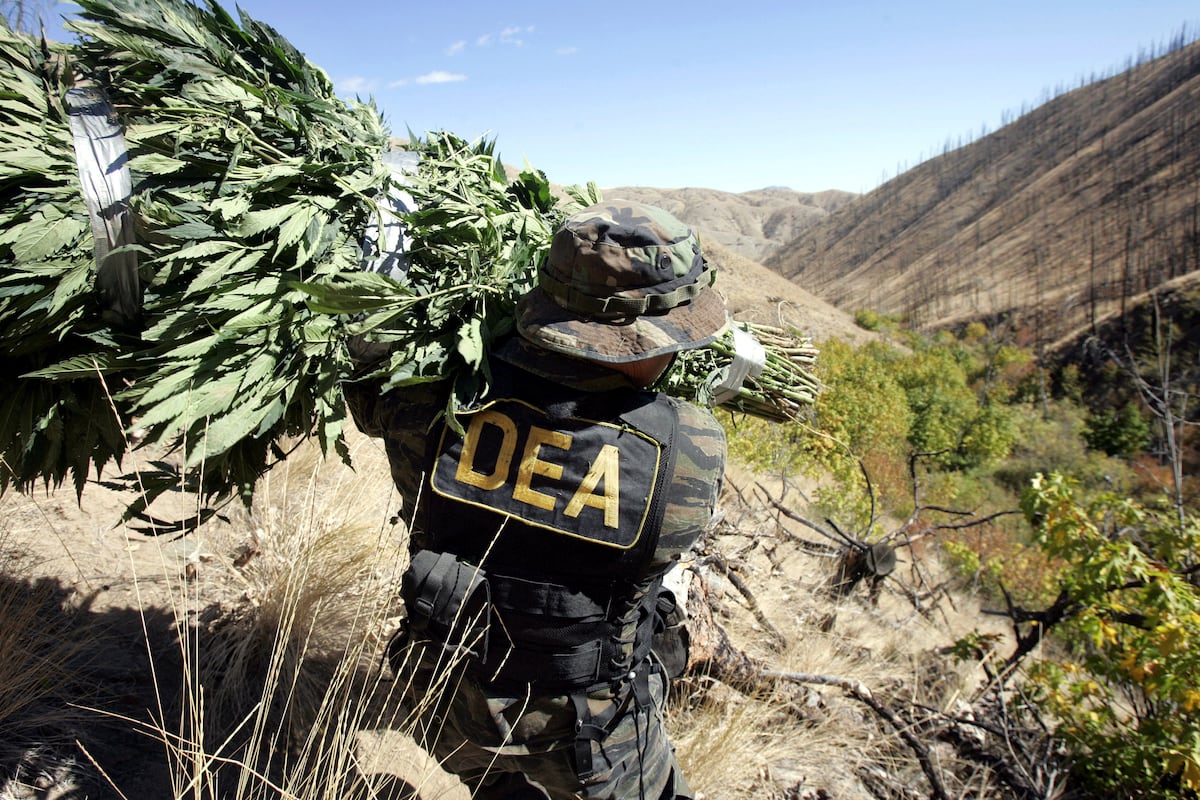The message that Mexican drug cartels want to send to the United States is clear: “We are here. We are among you.” This is how Special Agent Matthew W. Allen of the DEA, the U.S. anti-narcotics agency, explained it when he was asked about the risk posed by Mexican criminal organizations in the United States. Allen, head of the agency’s Los Angeles division, said at a hearing before the U.S. Senate that members of the Jalisco New Generation Cartel (CJNG) were monitoring DEA agents and witnesses during the trial of Rubén Oseguera González, aka El Menchito, the son of cartel leader Nemesio Oseguera El Mencho. At the hearing, Allen recounted how the criminal group retaliated against family members of informants, an example of the violence this group routinely employs and the threat it poses to American citizens.
The DEA special agent asserted that they have evidence that cartel members are monitoring DEA agents in the United States and that some of these operations occurred in parallel with the Menchito trial. “In my 22 years-plus in the DEA in the Los Angeles area, and in other areas of the world, I’ve experienced several instances of cartels and criminal organizations surveilling our people, both in Mexico and the United States,” he explained. Allen asserts that these activities “are frequent,” and that his agents notice they are being spied on when they go out to execute a search or arrest warrant. When they realize they are being followed, they must notify local police so they can stop the suspect car and initiate an investigation. The agent used this activity as an example to demonstrate the danger that the men and women who work for the DEA face every day in their operations, even in their own country. “I’ve personally lost several friends on this job,” he lamented.
The U.S. Senate Judiciary Committee convened a hearing on Tuesday titled “The Thin Blue Line Protecting America from the Cartels” to assess the danger Mexican criminal organizations pose to its law enforcement. To illustrate the violence they face, Allen stated that after the capture of El Mencho’s son and his prosecution in the United States, his father’s cartel retaliated in Mexico. “One of our major CJNG cases involved a key witness who was later executed in Mexico along with his wife. Separately, the daughter of a cooperating witness was murdered soon after the sentencing,” he added. “This horrific act of revenge underscores the threat these terrorists pose to U.S. security: adversaries who kill without hesitation and who reach across borders with impunity.”
Shortly before the murders, Rubén Oseguera González had been sentenced to life in prison and ordered to forfeit over $6 billion in proceeds from the cartel’s drug trafficking by the District of Columbia Court in Washington. The heir to El Mencho was found guilty of conspiring to distribute cocaine and methamphetamine for U.S. importation and using a firearm in a drug conspiracy. The kingpin’s son had been arrested on June 23, 2015, in Mexico, released a week later by a judge’s order, and recaptured minutes later over the disappearance of two people. He was finally extradited to the U.S. in February 2020 and prosecuted four years later. It was the biggest judicial blow to the CJNG, currently considered the most powerful criminal organization in Mexico after its rival, the Sinaloa Cartel, was weakened by internal wars between its own factions.
The United States continues its efforts to destroy the organization. After declaring them a terrorist group, there is a $15 million bounty on El Mencho’s head, and his assets and properties as well as those of three other cartel leaders have been frozen. Meanwhile, Nemesio Oseguera Cervantes and his brother, Don Rodo, continue to lead the cartel and remain the most coveted prize of all for U.S. anti-drug authorities.
The life of El Mencho’s son-in-law in Los Angeles
At the hearing, the DEA agent detailed how some members of El Mencho’s family lived in a gated community in Riverside, California, “just down the street from the Chief of Police.” The home of Cristian Fernando Gutiérrez, alias El Guacho, and his wife, who is the daughter of Nemensio Oseguera, was searched by the DEA, and they found garbage bags overflowing with Rolex luxury watches, exclusive designer handbags, and $1 million in cash. In total, the seized goods were valued at $2.25 million. “These cartel figures were living in luxury, embedded in our communities, hiding in plain sight. They not only live in our communities, but they also sneak their deadly products into our homes under false pretenses,” the agent emphasized.
El Guacho fled to the United States to live a life of luxury after faking his own death in Mexico, where he was involved in the kidnapping of two Mexican marines in November 2021. The crime was the CJNG’s response to the capture of Rosalinda González Valencia, El Mencho’s wife, in the Guadalajara metropolitan area. When he was finally arrested late last year, U.S. authorities accused him of being one of the cartel’s leaders and recounted how El Mencho’s son-in-law assumed a false identity to “evade justice and live a life of luxury in California.”
Sign up for our weekly newsletter to get more English-language news coverage from EL PAÍS USA Edition
